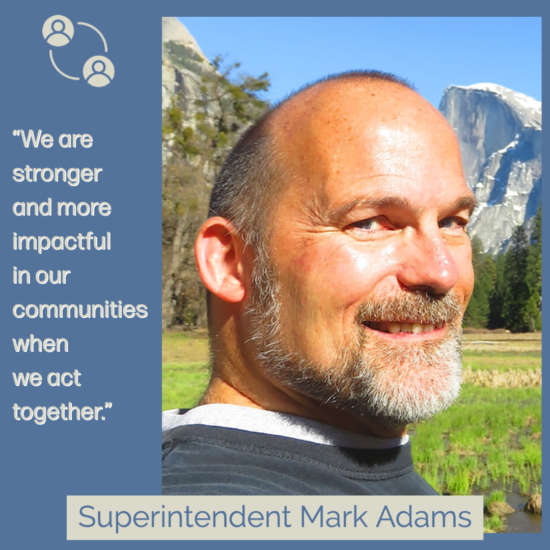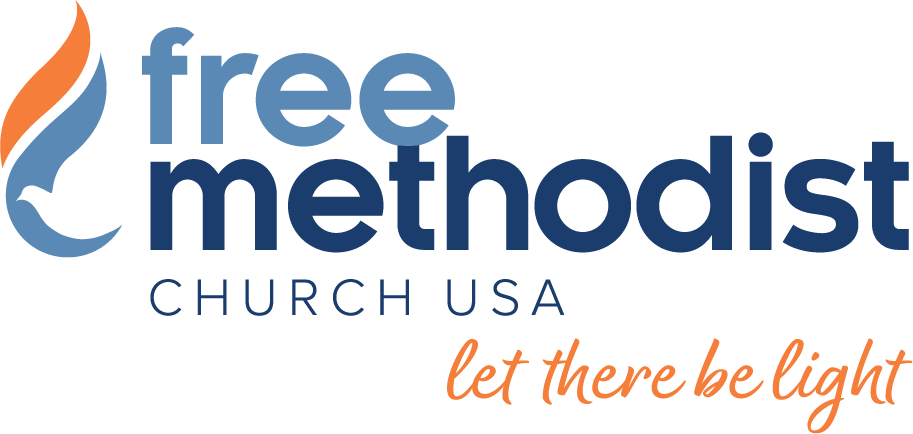 Raging fires throughout Northern California have taken many homes, creating smoke-filled air that chokes out oxygen, making every breath a labored chore, obscuring the sun, and has made life dangerous and miserable for months. One Free Methodist church, the Foothill Community Church, was evacuated and hundreds of Free Methodists spanning a 300-mile range of burning landscape have been evacuated or under warnings to do so. We know Christ is our rock, and through faith we can be encouraged and undaunted. Yet, how does being in a connectional church help during times of crisis?
Raging fires throughout Northern California have taken many homes, creating smoke-filled air that chokes out oxygen, making every breath a labored chore, obscuring the sun, and has made life dangerous and miserable for months. One Free Methodist church, the Foothill Community Church, was evacuated and hundreds of Free Methodists spanning a 300-mile range of burning landscape have been evacuated or under warnings to do so. We know Christ is our rock, and through faith we can be encouraged and undaunted. Yet, how does being in a connectional church help during times of crisis?
Simply put, we are stronger together. Pastors Chris and Kaydi Hemberry and their daughters were evacuated from their home in Oroville, California, and along with dozens of others fleeing harm’s way, were warmly received by the Table Mountain Free Methodist Church in nearby Thermalito. Two years earlier, when the Table Mountain Church community was reeling from evacuations and homes lost to the fire that destroyed neighboring Paradise, California, it was the Foothill Community Church that operated as the support network. Both churches rose to undeniably bless their communities. Further, the national Free Methodist Church, through the Bishops’ Crisis Response Fund, provided significant aid to help rebuild perishing lives through the FM presence in charred Butte County.
Early in the 2020 fire season, the Corralitos Community Church housed and supported fire refugees fleeing the ravages of the CZU Lightning Fire Complex, burning through large portions of Santa Cruz and San Mateo counties. The churches of the Sierra Pacific Conferences provided financial aid and support for not only Free Methodists in the region but all suffering and seeking aid.
Congregations closely networked together in a local community, throughout a region, and nationally provide deep spiritual bonds that are an extraordinary benefit of being a connectional church. Add to this the practical muscle that makes it simple to quickly transfer and provide aid, communicate with one another, and execute relief and guidance on a large scale, and we have a network of churches truly stronger together.
Many today do not trust “denominations” or institutions in general. In some ways, however, we see denominations in the same way that Winston Churchill viewed democracy, when he said, “Many forms of government have been tried, and will be tried in this world of sin and woe. No one pretends that democracy is perfect or all-wise. Indeed it has been said that democracy is the worst form of government except for all those other forms that have been tried from time to time.”
Free Methodists do not believe the denomination is perfect, all wise, or nearly as fruitful or beneficial as it could be. We do believe, with all our collective hearts, that despite imperfections, we are yet much stronger and wiser together. Our connectionalism remains, as John Wesley referred to it, a “means of grace.”
Jesus spoke of a yoke, a device that binds animals together, as liberating. Indeed, two horses can pull 9,000 pounds together, but yoke a team of four and they can pull 30,000 pounds. If horses that are yoked together, are stronger together, then imagine the great power that exists when the churches of Jesus are yoked together under the Lordship of Christ? Our burden, says Jesus, becomes light, and our yoke, rather than being a restrictive hinderance, is easy (Matthew 11:29–30).
Connectional church is nothing other than being yoked together under Christ’s direction. It does limit some freedom, and it does require that one church may sacrifice today for the benefit of another, which may sacrifice tomorrow for the blessing of yet another. But is that not what family has always done? Is that not the best scenario for a local congregation? Is that not then also the greatest hope for a national or global network of Christ-followers?
We have seen how this works during a fire. During the pandemic, which has significantly altered how churches operate, leaders and members have been stressed and pulled from so many different angles in their communities that reactivity or despair could have resulted. But as a result of national guidance for best practice, offers of financial support, translating into regional (conference) guidance, training, equipping, spiritual and emotional support along with funding to offset significant losses — our churches are surviving, and in some cases, thriving during what would otherwise be a devastating national tsunami of loss. We are, during a historic pandemic, stronger together.
But even in terms of “normal” church life, being yoked together has significant impact. Connections between churches in Redwood City, San Francisco, Modesto, Oroville and Ripon, California, along with financial backing from the conference, created the needed funds and volunteers to launch Iglesia Misionera Gracia y Amor. This church launched two years ago in a garage, grew to several living rooms, and is meeting now in a warehouse, reaching Stockton, California, for Jesus and could only have been birthed through connectional support. Sixteen new Free Methodist churches have been planted in Northern California and Nevada over the past four years alone, relying upon the mutual, connectional support of churches and church leaders working together. Leadership development and mentoring takes place between gifted church leaders, igniting emerging leaders and new calls, particularly among women and minorities. This is only possible through connectional collaboration and impossible to accomplish well for a disconnected church that is not a mega-church.
Cities are nourished through connectional ministry. The “Ghost Ship” burned to the ground in Oakland, California. This conflagration made national news as many homeless people and artists lived and worked in this large, abandoned, but densely populated building, and many died horrible deaths. It was the Bay Community Fellowship (FMC) of Oakland, strengthened and supported by representatives from several churches in the conference, that gathered around the ruins and provided pastoral care and opportunities for community lament and a way toward hope. We are stronger and more impactful in our communities when we act together.
Perhaps the most delightful yoked-together outcome is global impact. While bashed by many across America as antiquated, denominations remain the world’s largest source of leaders and funds to bring the good of Jesus to every nation. The network of Free Methodist churches requires that each one actively participate as able in the Great Commission through prayer, giving and even going. Every local Free Methodist church, consequently, becomes a global church with global influence.
In the Sierra Pacific Conference, for example, we share a sister relationship with the Free Methodist churches of Myanmar. Burmese Christians pray at every church service for churches in California and Nevada, and the networked churches in the USA pray every week for the beleaguered but undaunted brothers and sisters in Myanmar. A percentage of every offering any worshiper contributes to a church in our network is allocated to support churches and church planting in the 12th most dangerous place to be a Christian — Myanmar. Our leaders swap stories and grow from one another’s perspective in theology, evangelism, spiritual life and church growth. We are yoked together across oceans. There are many other Free Methodist missionaries and global leaders that local churches choose to support. It is no stretch of credulity for a member of a church plant of 12 or a worshiping group of 1,200 in the Free Methodist connection to claim the status of global Christian.
Whether across town, networked over hundreds of miles in a “conference,” united by national ties or connected across oceans by intentional faith and commitment as Free Methodists yoked together with Jesus, there is an undeniable truth. Whether struggling through crises, engaging ministry opportunities or supporting one another as individuals, it is clear. We are stronger together.
About the Author
Mark Adams superintends the Sierra Pacific Conference (Network of Undeniable Blessing), superintended the North Central Conference, and church planted and pastored at several Chicagoland locations. Mark has also worked as a mental health counselor, child welfare worker, social work supervisor and was on faculty at Garrett-Evangelical Theological Seminary. He is married to Kerrie, and they have four sons and eight grandchildren.
